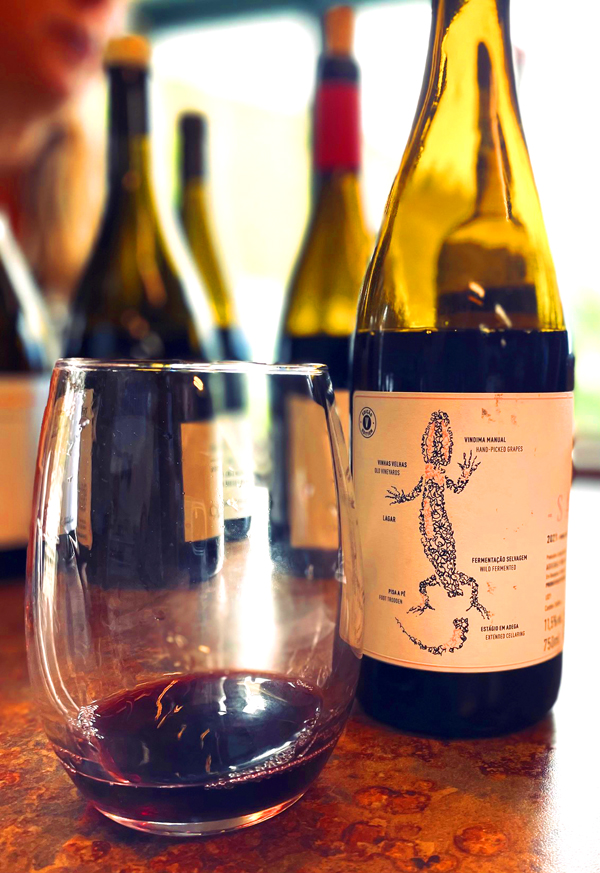2021 Arribas Wine Company, Saroto Tinto, Trás-os-Montes, Portugal.
A beautifully aromatic, bright and spicy red wine from a remote high elevation region of Portugal, the 2021 Saroto Tinto is wildly delicious co-fermented field blend with about 70% red grapes and 30% white grapes, with many extremely rare varietals included, with some almost never heard of grapes that are only found here. I had never tried Arribas Wine Company before yesterday and was left impressed with what I tasted from Frederico Machado and Ricardo Alves, two young vignerons that recently created this winery in the Trás-os-Montes area of Portugal, which is located in the far northeastern corner of the country and is landlocked by mountains in the north, west and south, and high plains/desert to the east. The dark ruby hued wine is natural and as feral as the location, with bright brambly raspberry, cherry, cranberry and currant fruits, wild herbs, sage, cinnamon, anise and peppery notes on the medium bodied palate, along with mineral tones, sultry earthiness, fresh acidity and supple and dry tannins that linger on the finish. This old school effort reminds me of what the new generation of winemakers are doing everywhere, trying to create authentic and no pretense, quaffable, but serious terroir driven wines, with Arribas Wine Company being firmly in the natural wine camp. That said, they want to make quality wine, all the vineyard work done holistically by hand with no chemical or mechanized farming, with no synthetic treatments except the use of some sulfur and copper compound to keep mildew away.
The Arribas Wine Company Saroto Tinto is a non classified regional wine, since the rules in the appellation don’t allow for co-ferments and or lower than 11.5% natural alcohol, which in most cases would exclude what Arribas is doing here, especially this one which has a co-fermtation of about a dozen grapes! The varietal make of the 2021 version, according to the winery, includes Tinta Gorda, Tinta Serrana, Bastardo, Rufete, Alvarelhão, Rocheiro, Ocheiro, Verdelho, Malvasia, Bastardo Branco, Posto Branco, Formosa, and maybe a few more, some un-named, all of which come from old vines set on granite based soils with clayey, loamy and/or sandy soils. There are literally hundreds of unique indigenous grapes grown here, mostly head trained and dry farmed, lots that are unknown to anyone, but a few people outside of Portugal, and many of them have more than a dozen different local names and nicknames. Again the vines are old, 70 to 80 years old in this case with pretty steep slopes, promoting small yields and concentrated flavors.The handpicked grapes, picked with low sugars, came in whole cluster and were foot trodden in a traditional lagar (old stone or concrete fermentation vessels) and macerated for 4 days allowing the juice to start fermenting naturally with indigenous yeast and without temperature control, after which I understand they were pressed to used French Oak barrels to mature on the fine lees for about 9 months. This vintage came in at about 11.5% natural alcohol and is in a style that can be chilled slightly and enjoyed with picnics, rustic meals and enjoyed over the next couple of years.
($25 Est.) 92 Points, grapelive
